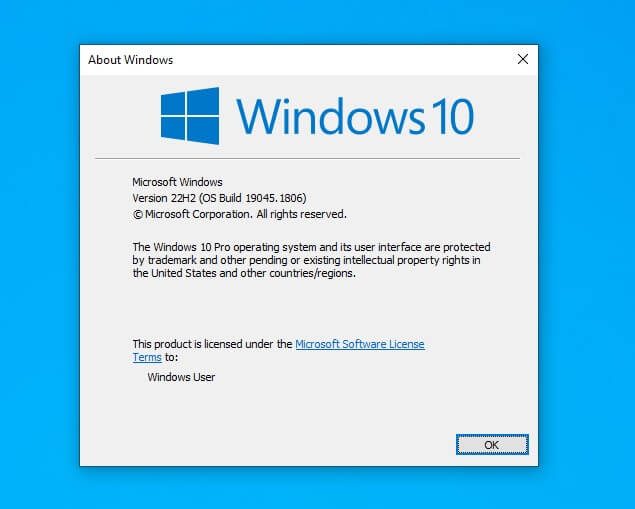Important.
Windows 10 will reach end of support on October 14, 2025. The current version, 22H2, will be the final version of Windows 10, and all editions will remain in support with monthly security update releases through that date. Existing LTSC releases will continue to receive updates beyond that date based on their specific lifecycles.
Windows 10 is set to reach its end-of-support milestone on October 14, 2025. This significant date marks the final security update for the majority of Windows 10 computers, prompting a widespread transition to Windows 11 to maintain security integrity.
However, Microsoft understands the attachment many have to Windows 10 and is extending a helping hand through the Extended Security Updates (ESU) program. This program offers an additional three years of security updates for those willing to invest in this extended support.
Jason Leznek, Principal Product Manager at Windows Servicing and Delivery, initially placed a strong emphasis on encouraging users and businesses to migrate to Windows 11. He highlighted the options available, such as updating existing PCs, purchasing new ones, or shifting to a Windows 365 cloud-based PC. This approach ensures that nothing is stored locally on your computer, an appealing prospect for businesses, though less so for personal use.
When delving into the ESU program's specifics, the offerings resemble those previously provided for Windows 7: three years of monthly security updates and technical support, with pricing structured annually. Initially, Microsoft didn't disclose the pricing, but it has since been announced: $61 for the first year, with a subsequent increase to $122 in the second year and $244 in the third year. Late joiners must cover the cost cumulatively.
Furthermore, Microsoft has clarified on its Windows IT Pro Blog that the stated prices are exclusive to commercial entities, with consumer pricing details to be announced in the future.
Leznek also confirmed that Windows 10 22H2 would serve as the final update for Windows 10, with no new features to be added during the ESU period. Despite this, Microsoft revisited the OS recently to integrate the Copilot generative AI assistant among other updates, indicating a maintenance focus on security updates since the 22H2 release.

The ESU program is particularly beneficial for businesses, educational entities, and governmental institutions, offering them the necessary time to familiarise with Windows 11's new features, prepare users, and conduct compatibility checks. While hardware compatibility was less of a concern in the transition from Windows 7 to Windows 10, Windows 11 introduces more stringent system requirements, potentially necessitating hardware updates or cloud-based solutions for some organisations.
Individual users may also find value in the ESU program, whether due to hardware limitations, personal preference, or concerns about Windows 11. Despite some criticisms directed at Windows 11, the ESU program offers a continued lifeline for Windows 10 enthusiasts, contingent on the eventual consumer pricing and the editions covered by the program, reminiscent of the Windows 7 ESU limitations to Pro and Enterprise versions.